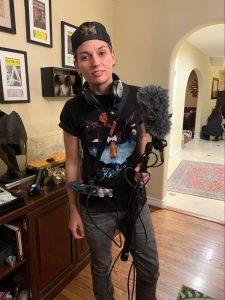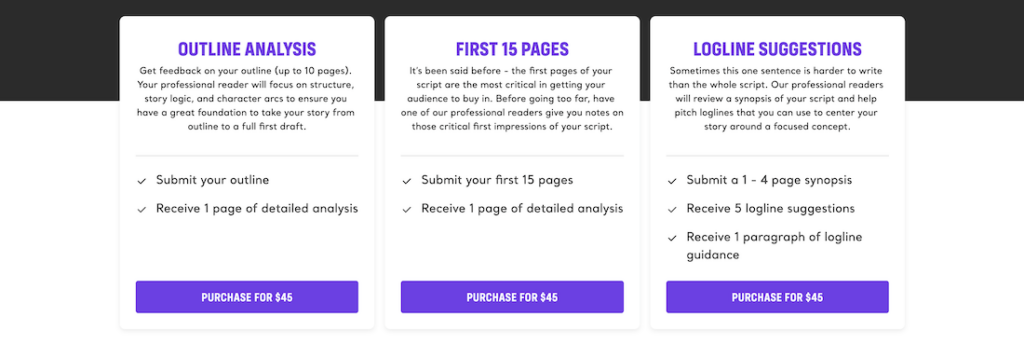I was born in Southern Appalachia, and raised in a double-wide trailer with 10 siblings by two disabled parents. My opportunities were limited but my imagination was vast, which came in handy since I often had to entertain myself as a kid. I remember being 11 years old and watching old war films while clutching a Nerf gun and hiding behind a basket full of clean clothes in my living room—or as I imagined it—behind enemy lines. I thought one day I’d grow up to be a soldier.
As a senior in high school, I was approached by an Army recruiter. After one of my softball games, he took my mother and me to lunch where he presented me with a stack of papers. I was to enlist for the following summer if I wanted to make it out of my unincorporated town. It never crossed my mind that there might be another option. The following week I received a call from the second oldest Women’s college in the US. They were offering me two athletic scholarships alongside my academic scholarships. I’d actually be able to afford tuition to the historical liberal arts school.
The only thing I’d ever been passionate about was storytelling, so I enrolled at Stephens College as a creative writing major. During my first semester, I developed a crush on a film major who took me to the editing lab to check out the assignment she was working on; a trailer she’d been cutting together of Alfred Hitchcock’s classic film Psycho. I was just a simple farm girl and I’d never heard of Hitchcock, but I innately understood using pacing to build tension and how music could enhance the impact of an important plot point. Something in me clicked.

Tennessee Martin
I reflected back on different points of my life—when my parents were fighting I’d watch war films and westerns ensuring a soldier or cowboy would save the day. When I realized I was probably a lesbian (but wasn’t quite sure what that meant) I watched South of Nowhere and The L Word to better understand myself. Rom-coms healed a broken heart, and slasher movies taught me how to control my fear. Television and film made me feel something in a time and place where feeling something wasn’t a given.
The crush on the film major eventually faded, but my love for cinema only grew. I realized my true calling was storytelling through an audible and visual lens, so I switched my major to film before my second semester.
After I graduated college, I moved to the City of Angels. I was a roughneck lesbian with a twangy accent and one month’s rent in my pocket. I had a hunger for filmmaking, and nothing else in the world would satiate it.
With no industry contacts, no jobs lined up, and no prior industry experience, I had my work cut out for me. I found an unpaid internship, a part-time job assisting a well-known actress from the ’60s, slept on an air mattress, ate a lot of instant ramen, and had coffee with anyone who would give me the time of day. I was a sponge, and I wanted to soak up everything.
Over time, I became a production assistant, writer’s PA, line producer’s assistant, and script coordinator. It took years of actually working in the industry to learn the business, but it took only one major meltdown to realize I hadn’t written a single script since I’d arrived. I’d studied film to be a writer, but the only thing people knew about me was I was competent at ordering lunches for other writers.
So, I started writing. A showrunner I once worked for told me that your tenth script would be your best, but what he didn’t tell me was how long it would take to write ten scripts. I’m still working towards that number, which probably means my best is yet to come.
Read More: From Contests To Staffing — 4 Tips on Finding Your Voice and Getting Read

Tennessee Martin
I finally had a few scripts under my belt, but I was still a coordinator. How was I going to get people to read my scripts and take me seriously as a writer? All around me, fellow/former assistants were announcing their first staffing gig or the financing of their first feature. I knew I needed to create a writing resume to share with people—something that reflected the work I was putting into my craft, but I had nothing to put on it.
I started applying to writing programs and fellowships, I’d use the feedback to inform rewrites and then I’d resubmit. Slowly but surely, my scripts started climbing in rank on Coverfly. I was playing in festivals and winning awards. I decided to squeeze the sponge of knowledge and produce my first short film, Hangry, which was distributed by Gunpowder & Sky’s platform, Alter.
That short helped me land a spot in the Starz #TakeTheLead Writing Intensive. I also placed in more than one ScreenCraft competition, where I was given the opportunity to hear other industry professionals speak about their experience navigating the entertainment business.

Tennessee Martin
Suddenly, my bio was filled with new achievements, and I’d compiled a real writing resume. Even better, a few fellow filmmakers, agents, managers, and development executives were texting me to tell me congratulations on my latest accomplishments. They’d seen various announcements on social media, in email blasts, and even an issue of MovieMaker Magazine.
All my hard work finally paid off when a fellow assistant slipped my gritty, southern gothic TV pilot, Sutton Holler (a ScreenCraft selection), to managers Evan Lewis and Steve Smith at Stagecoach Entertainment last October. It was my lucky day opportunity to meet preparation—they signed me in the room.
Now, my team and I are finalizing the new pitch deck and plan to take it out along with my pilot this Spring. I also wrote and produced my second short film, Lesbophilia, last year which was featured in Deadline and will be premiering on the festival circuit in 2024.
All that’s left is to land the highly-coveted and increasingly less-elusive television staff writer position, which will be a wonderful addition to the resume I’ve worked so hard to build.
CHECK OUT OUR PREPARATION NOTES SO YOU START YOUR STORY OFF ON THE RIGHT TRACK!
The post How Tennessee Martin Built a Real Screenwriting Resume With ScreenCraft appeared first on ScreenCraft.
Go to Source
Author: Tennessee Martin

